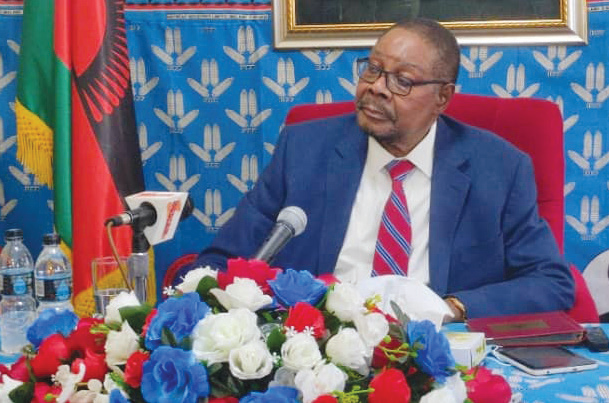Public officers should uphold the law
The High Court of Malawi Commercial Division on December 9 reversed a decision by the Financial Services Appeal Committee ordering business magnate Thomson Mpinganjira to dispose of his shares in FDH Financial Holdings Limited.
The Reserve Bank of Malawi (RBM), as the registrar of financial institutions in the country, ordered Mpinganjira to dispose of his assets in M. Holdings, which is a majority shareholder in FDH Holdings following his conviction for bribery earlier this year.
Taken into perspective, the decision to direct the business tycoon to dispose of his assets in M Holding, which in the registrar’s interpretation of the law would have extended to him disposing of his shares in FDH Holdings too, would have meant Mpinganjira would have lost his business.
Prior to the ruling, and presumably, to protect their financial interests in the event of a conviction, Mpinganjira and his brother, Peter, applied to transfer their shares to the next of kin. In the case of Thom, to his children and brother.
RBM refused the request on the basis that Mpinganjra could not transfer the shares to people he was related to. The registrar would go on to admit in the application that there was no legal basis for making such a direction.
The financial regulator also ordered FDH Holdings to dispose of its shares in FDH Bank on account of Mpinganjira’s conviction. Note that the Registrar reportedly ignored evidence on the shareholder structure of FDH Holdings and the fact that by law, Mpinganjira and FDH Holdings are separate entities.
From a layman’s perspective, these were justifiable reasons for the Registrar to reconsider his determination. Unfortunately, RBM refused to bulge and stuck to its guns and the Financial Services Appeal’s committee upheld its decisions.
What transpired was a court case that Judge Mike Manda, in his judgement, branded an “utter waste of time and resources which ought to be directly blamed on the unreasonableness and obstinance of the registrar.
In his determination, Judge Manda even queried whether there was “something more underlying than what meets the eye.” There is a lot of merit in this argument. The registrar flouted some principles of law that even a layman would understand.
It is questionable that the registrar would not let Mpinganjira transfer his shares to his brother and children.
No one would dispute that the regulations prohibit people convicted of fraud, forgery, perjury, money laundering or any other material breach of financial services law from holding shares from shares in a bank or a holding company.
But nowhere does it say the person can transfer their shares to his children and brother. As the learned Judge noted, it was an unnecessary restriction of his rights as a shareholder “to transact with his shares as he deems fit”.
And yes, even people convicted of crimes and/or serving sentences have rights that must be respected.
As the learned Judge noted, it is almost as if the Registrar here was hellbent on stripping the Mpinganjira family off their property. If that is the case, then one would wonder why.
It is important to note that this ruling came after members of Parliament cautioned the Tonse-led administration against passing laws that “target individuals”. The members were responding to some amendments the government wanted to make to the Banking Act.
The Bill further proposes that when a shareholder is acquitted by courts or has had their cases discharged, the registrar of financial institutions will have a final say on the matter.
If these amendments to the Act were in force, Mpinganjira would have lost the financial benefits from his shares in FDH regardless of the ruling of the Commercial Division of the High Court.
The conduct of the RBM and the proposed amendments the government wants to make to the banking Act could erode the fundamental principles of Malawi’s democracies and the rights of individuals afforded by law.
If left unchecked, the misconduct of public officers and the questionable amendments to the country’s financial services law could create precedence and conditions for the State to use its institutions and the regulatory powers it has to seize personal assets without cause or legal basis.
Kudos to the courts and the members of Parliament for defending Malawians’ Constitutional rights and barring the return of authoritarian tendencies in a democratic dispensation.





